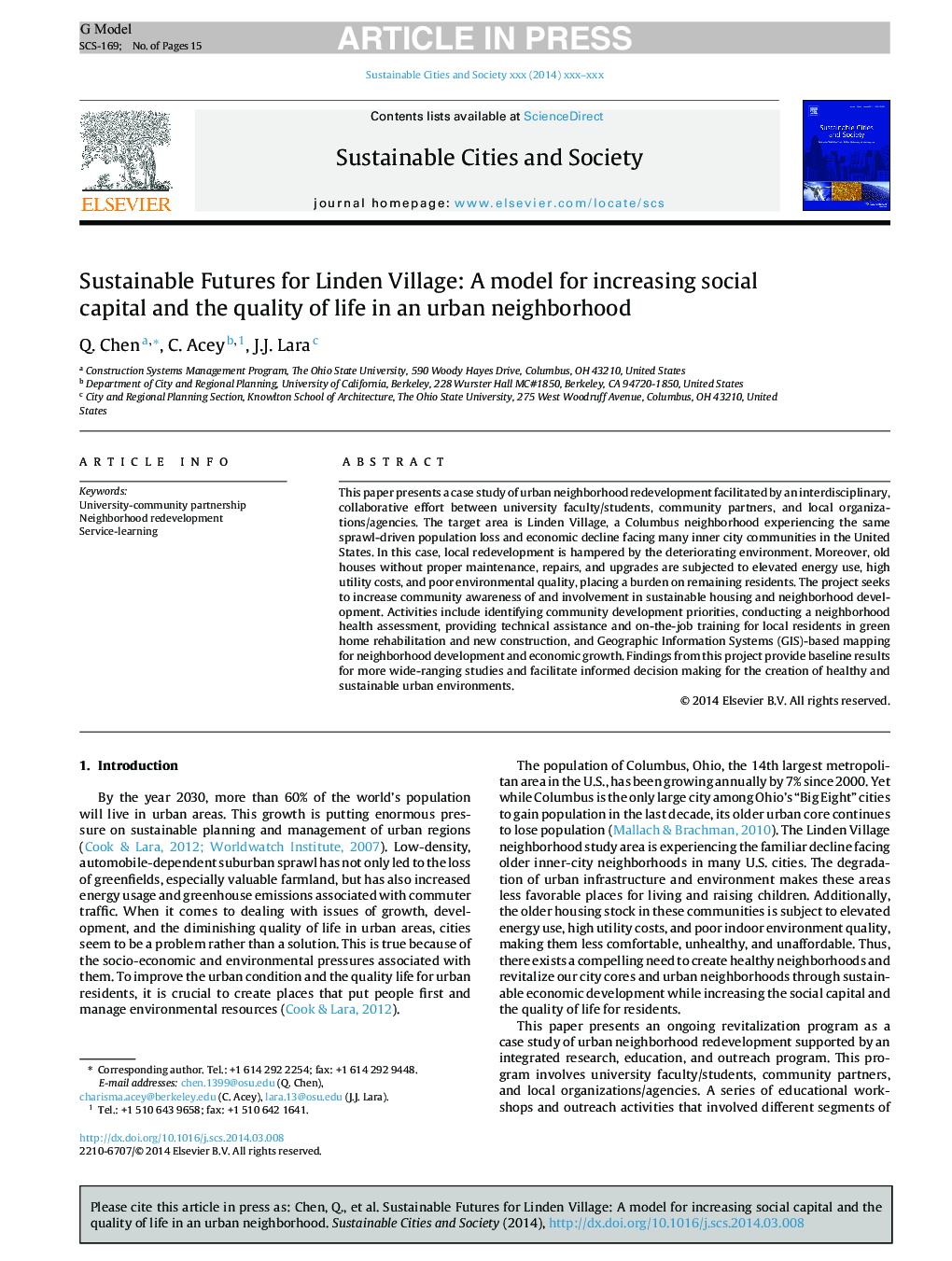| Article ID | Journal | Published Year | Pages | File Type |
|---|---|---|---|---|
| 6776457 | Sustainable Cities and Society | 2015 | 15 Pages |
Abstract
This paper presents a case study of urban neighborhood redevelopment facilitated by an interdisciplinary, collaborative effort between university faculty/students, community partners, and local organizations/agencies. The target area is Linden Village, a Columbus neighborhood experiencing the same sprawl-driven population loss and economic decline facing many inner city communities in the United States. In this case, local redevelopment is hampered by the deteriorating environment. Moreover, old houses without proper maintenance, repairs, and upgrades are subjected to elevated energy use, high utility costs, and poor environmental quality, placing a burden on remaining residents. The project seeks to increase community awareness of and involvement in sustainable housing and neighborhood development. Activities include identifying community development priorities, conducting a neighborhood health assessment, providing technical assistance and on-the-job training for local residents in green home rehabilitation and new construction, and Geographic Information Systems (GIS)-based mapping for neighborhood development and economic growth. Findings from this project provide baseline results for more wide-ranging studies and facilitate informed decision making for the creation of healthy and sustainable urban environments.
Keywords
Related Topics
Physical Sciences and Engineering
Energy
Renewable Energy, Sustainability and the Environment
Authors
Q. Chen, C. Acey, J.J. Lara,
